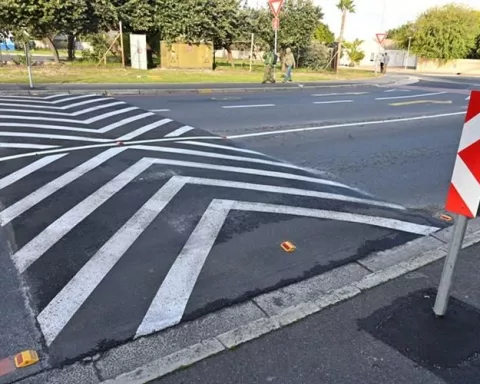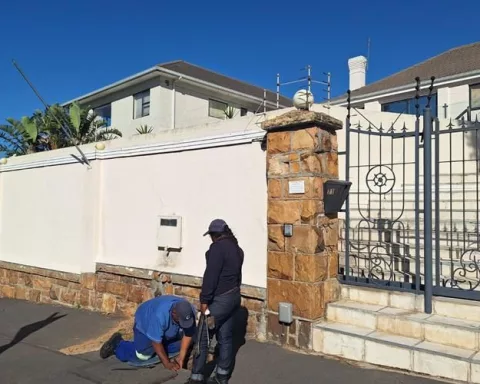Cape Town is working hard to make transportation better for everyone! They are hosting community events where residents can share their thoughts on issues like potholes and traffic safety. The city plans to connect public transport, bike paths, and walking routes to create a safer and greener environment. At a special gathering in Table View, people can discuss new ideas and learn about careers in transportation, making it a lively and fun experience for all ages. By listening to its residents, Cape Town aims to create a brighter, more connected future for everyone.
How is Cape Town addressing urban mobility challenges?
Cape Town is enhancing urban mobility by hosting community events to gather feedback on transportation issues. Key initiatives include integrating public transport, cycling routes, and pedestrian pathways, promoting safety, efficiency, and sustainability, and encouraging resident engagement in urban planning efforts.
Embracing Change in Urban Mobility
Urban centers worldwide continue to evolve, confronting both challenges and seizing opportunities in the realm of transportation. On October 15, 2024, Cape Town’s Urban Mobility Directorate will host a dynamic event at the Leibrandt van Niekerk Community Hall in Table View. This gathering invites residents to engage in discussions about innovative transportation solutions, reinforcing the city’s dedication to transparency and open dialogue. Urban mobility remains a critical component in shaping Cape Town’s future, facilitating better connectivity across the metropolis.
To address the matter of urban mobility, cities must tackle the pressing question: How can a city ensure its roads cater to current demands and future needs? The concept has grown globally, aiming to merge safety, efficiency, and sustainability. In its bustling streets and vibrant communities, Cape Town exemplifies the need for such integration. The meeting at Table View reflects the city’s broader efforts to incorporate these principles into its infrastructure and services.
Councillor Rob Quintas, a key figure in the Urban Mobility Directorate, advocates for these community roadshows, highlighting the necessity beyond mere road maintenance and traffic control. His vision extends to a comprehensive approach that considers daily commutes, pedestrian safety, and environmental factors. “We are taking the City’s Urban Mobility show on the road to Table View,” Quintas states, emphasizing the importance of resident feedback in keeping Cape Town moving forward.
Engaging the Community in Urban Planning
Residents will have the chance to express their concerns and suggestions regarding potholes, traffic calming measures, and stormwater infrastructure. This initiative presents a rare opportunity for individuals to interact directly with Urban Mobility area managers and officials, closing the gap between city planners and citizens. Such exchanges empower community members and provide city officials with valuable insights into localized challenges.
However, the event extends beyond a platform for voicing complaints; it celebrates potential and innovation. For those considering a career in transportation, the roadshow reveals a wealth of opportunities. From understanding the technicalities of road construction to grasping the strategic foresight needed in transport planning, attendees can explore a field rich with cutting-edge advancements. The advent of smart traffic systems and sustainable transport technologies suggests a future where mobility surpasses traditional limitations.
The city’s commitment to education and engagement reaches the younger generation as well. Entertainment and interactive games designed for the event ensure an engaging and educational experience. This transforms the community hall into a lively center of activity, where learning is both fun and immersive.
A Historical Perspective on Mobility
Historically, urban mobility has evolved alongside cultural movements, reflecting societal dreams and concerns. The 20th century witnessed the rise of the automobile, symbolizing freedom and progress but also leading to congestion and pollution. In today’s context, cities like Cape Town must navigate this legacy, balancing the allure of the open road with the practicalities of sustainable urban planning.
Table View serves as a significant chapter in this narrative. The suburb, with its mix of residential, commercial, and natural spaces, presents unique challenges and opportunities. As residents gather at the community hall, they bring diverse perspectives shaped by their daily experiences. Their stories, which mirror broader urban dynamics, enrich the conversation and drive actionable change.
Cape Town’s strategy for urban mobility aligns with global trends towards multimodal transport networks. By integrating public transport options, cycling routes, and pedestrian pathways, the city aims to create a seamless mobility experience. These efforts not only reduce dependence on private vehicles but also promote healthier and more connected communities. The event in Table View provides a platform to explore these themes, urging residents to imagine a future where urban spaces prioritize people over cars.
Inspiring Participation and Innovation
The significance of the meeting lies not only in the exchange of ideas but also in its potential to inspire. As residents engage with city officials and experts, they become active contributors to the narrative of Cape Town’s transformation. Their input, whether in questions, suggestions, or aspirations, helps shape the city’s path forward.
Ultimately, the Urban Mobility Directorate’s initiative represents a broader trend towards participatory governance. It acknowledges that effective urban planning cannot occur in isolation but must emerge from collaboration. By bringing the conversation to the heart of communities, Cape Town reaffirms its commitment to creating a city that is not only livable but also dynamic and forward-thinking.
In the rich tapestry of urban life, Table View’s roadshow is a vibrant thread, weaving together history, innovation, and community spirit. It invites residents to envision a city where mobility becomes more than a utility but a shared journey towards a sustainable and inclusive future.
FAQ: Urban Mobility in Cape Town
What initiatives is Cape Town implementing to improve urban mobility?
Cape Town is enhancing urban mobility by hosting community events to gather feedback on transportation issues. The city is integrating public transport, bike paths, and pedestrian routes to promote safety, efficiency, and sustainability while encouraging resident engagement in urban planning.
When and where is the next community event focused on urban mobility?
The next community event will be held on October 15, 2024, at the Leibrandt van Niekerk Community Hall in Table View. This gathering will facilitate discussions on innovative transportation solutions and allow residents to engage directly with city officials.
How can residents participate in the urban mobility discussions?
Residents are encouraged to share their concerns and suggestions regarding transportation issues such as potholes, traffic calming measures, and stormwater infrastructure. The event will allow for direct interaction with Urban Mobility area managers and city officials.
What opportunities will be available for those interested in a career in transportation?
The event will provide insights into various career opportunities within the transportation sector, including road construction, transport planning, and the latest advancements in smart traffic systems and sustainable transport technologies.
How does Cape Town plan to address historical transportation challenges?
Cape Town’s strategy acknowledges the historical evolution of urban mobility, which has often favored automobiles, leading to congestion and pollution. The city aims to balance this legacy by promoting multimodal transport networks that prioritize people over cars and foster healthier, more connected communities.
What is the significance of community engagement in urban planning?
Community engagement is essential for effective urban planning as it ensures that the needs and perspectives of residents are considered. By encouraging participation, Cape Town aims to create a more livable, dynamic, and inclusive city, reflecting the diverse experiences of its community members.












